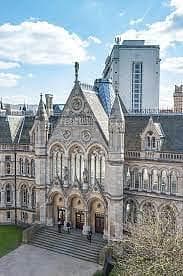BSc Hons Computing at Nottingham Trent University
Nottingham, United Kingdom
- Tuition Fee £ 17,500
- Country Rank-
- Duration36 Months
- Score IELTS: 6 TOEFL: 74
Program Overview
We’ll give you the best of both worlds by bringing together internet-based development with computing skills vital to supporting businesses.
You’ll have the perfect combination of theory and practice as you explore Internet technologies, database systems and application development– all backed up with lots of practical experiences.
Develop your practical skills by taking part in multimedia and virtual reality projects. Our graduates are knowledgeable about the development of software and able to design and manage complex information systems.
Cost Of Studying At Nottingham Trent University
Interest rates as low as 8.9% *
250K+
Students Assisted
800Cr+
Loan Amount Disbursed
5000+
Loans Sanctioned
Check Loan Eligibility
Powered by
